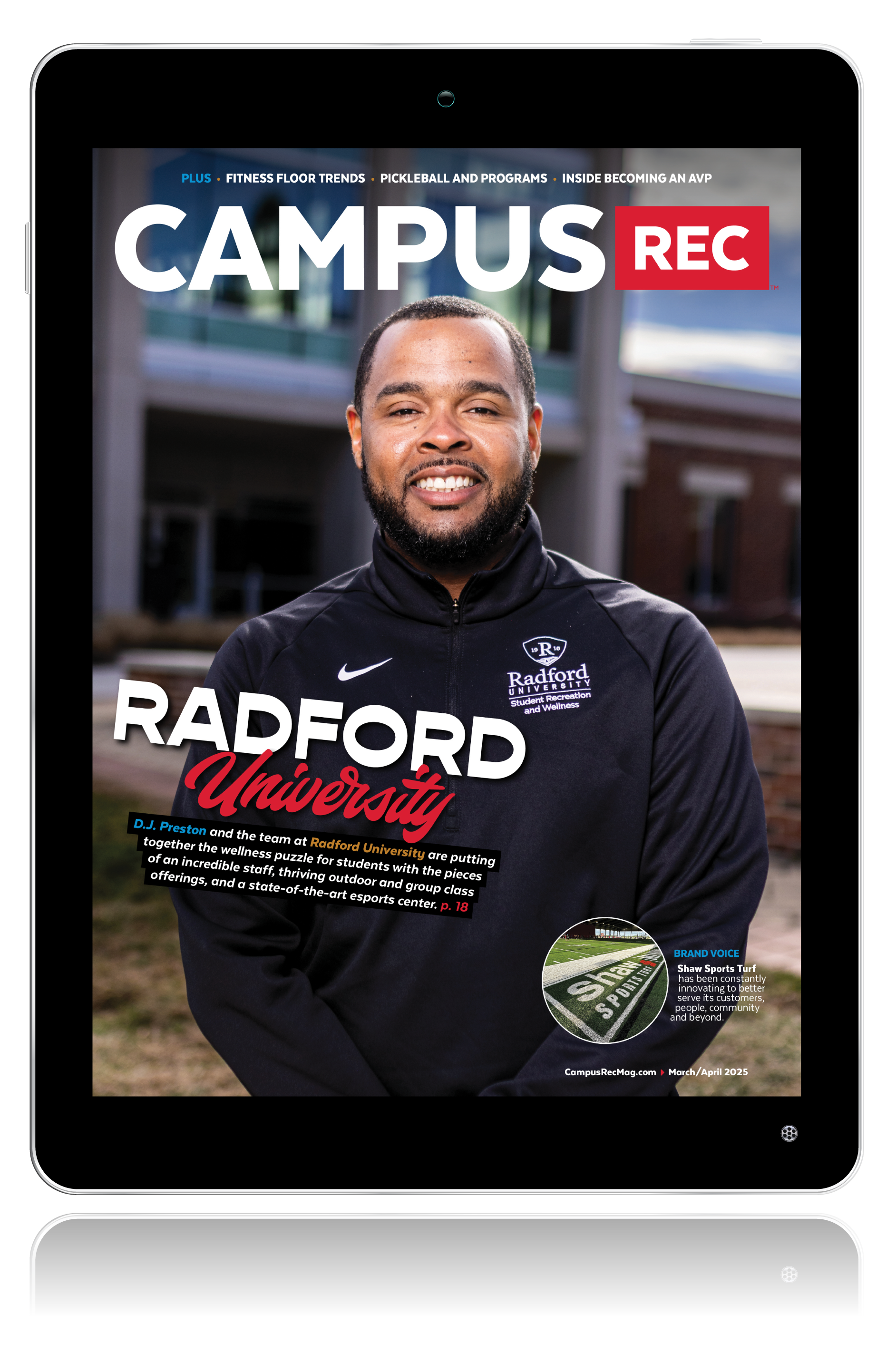Is your rec center built to last? You put so much time and effort into planning programs, renovating facilities and hiring student staff, but there could be a fundamental piece missing that’s keeping your department from becoming truly great.
In “Built to Last: Successful Habits of Visionary Companies” by Jim Collins and Jerry I. Porras, a distinction is made between longer-lasting, successful organizations and the ones that ultimately fail.
That difference is between the “time tellers” and “clock builders,” and this principle certainly applies to campus recreation.
“Having a great idea or being a charismatic visionary leader is ‘time telling,’” said Collins. “Building a company that can prosper far beyond the presence of any single leader and through multiple product life cycles is ‘clock building.’”
Furthermore, there tends to be a correlation between clock builders and highly successful organizations. “The builders of visionary companies tend to be clock builders, not time tellers,” continued Collins. “They concentrate primarily on building an organization — building a ticking clock — rather than hitting on a market just right with a visionary product idea and riding the growth curve of an attractive product lifecycle.”
Your rec center will have a stronger, more enduring presence on campus if it’s built on a set of core values instead of just a great idea or leader. Great ideas and leaders can temporarily drive necessary change in an evolving campus rec industry, but they will not endure as long as the vision of clock builders.
In fact, according to Collins, there are two primary reasons you shouldn’t make your rec center’s success dependent on a singular focus.
“If you equate the success of your company with the success of a specific idea — as many businesses do — then you’re more likely to give up on a company if that idea fails,” said Collins. “And if that idea happens to succeed, you’re more likely to have an emotional love affair with that idea and stick with it too long, when the company should be moving vigorously on to other things.”
Instead, be a clock builder — set your department’s vision on its core values. The legacy of your rec center should be its purpose and very existence, not its programming, facility or amenities, which are all byproducts of your mission to help students live healthier lifestyles.
“If you see the ultimate creation as the company, not the execution of a specific idea or capitalizing on a timely marketing opportunity, then you can persist beyond any specific idea — good or bad — and move toward becoming an enduring great institution,” said Collins.










